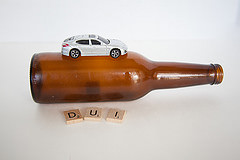Tiers Of Offenses In Dui Cases And What You Must Prove To Win
Many people surprisingly believe that there is only one type of DUI charge in Pennsylvania. This is wrong and if you fail to understand the different types or “Tiers” in Pennsylvania, you are headed down a bad path. DUI charges are divided into 3 Tiers.
 ?TIER I – Lowest Tier – Driving Under the Influence (DUI) Offense
?TIER I – Lowest Tier – Driving Under the Influence (DUI) Offense
A Tier I offense is a violation of Section 3802(a)(1), when there isn’t an accident and you didn’t refuse a chemical test (breathalyzer or blood test). You also commit a Tier I DUI Offense if you violate Section 3802(a)(2). To convict you under Section 3802(a)(1), the district attorney (prosecution) must prove all of the following beyond a reasonable doubt:
- You were in actual physical control of the movement of a vehicle; and
- You drank (imbibed) enough alcohol to make you “incapable of safely driving, operating, or being in actual physical control of the movement of the vehicle.”
To convict you under Section 3802(a)(2), the prosecution must prove all of the following beyond a reasonable doubt:
- You drank alcohol
- You were in actual physical control of the movement of a vehicle; and
- Within two hours after driving or operating the vehicle, the alcohol concentration in your blood or breath (BAC) was 0.08 percent to 0.09 percent.
Notice that under Section 3802(a)(2) unlike Section 3802(a)(1), the prosecution doesn’t have to prove that you were incapable of driving or operating a vehicle safely. It’s not an element that the prosecution must prove beyond a reasonable doubt!
TIER II – Driving Under the Influence (DUI) Offense
A Tier II offense is a violation of Section 3802(a)(1) when there is an accident that results in bodily injury or property damage, or a violation of Section 3802(b), Section 3802(e), or Section 3802(f). To convict you under Section 3802(a)(1) with accident, the district attorney (prosecution) must prove all of the following beyond a reasonable doubt:
- You were in “actual physical control of the movement of a vehicle”; and
- You drank (imbibed) enough alcohol to make you “incapable of safely driving, operating, or being in actual physical control of the movement of the vehicle.”
- There was an accident which caused property damage or an injury
To convict you under Section 3802(b), the prosecution must prove all of the following beyond a reasonable doubt:
- You drank alcohol;
- You were in actual physical control of the movement of a vehicle; and;
- Within two hours after driving or operating the vehicle, the alcohol concentration in your blood or breath (BAC) was 0.10 percent to 0.159 percent.
Notice that under Section 3802(b) unlike Section 3802(a)(1), the prosecution doesn’t have to prove that you were incapable of driving or operating a vehicle safely. It’s not an element that district attorney (prosecution) must prove beyond a reasonable doubt!
TIER III – Highest Tier – Driving Under the Influence (DUI) Offense
- A Tier III violation is the highest tiered DUI. It’s a violation of Section 3802(a)(1) when you refuse the blood or breathalyzer test, Section 3802 (c) or Section 3802(d)(1) or Section 3802(d)(2).
To convict you under Section 3802(c), the prosecution must prove all of the following beyond a reasonable doubt:
- You drank alcohol
- You were in actual physical control of the movement of a vehicle; and
- Within two hours after driving or operating the vehicle, the alcohol concentration in your blood or breath (BAC) was 0.16 percent or higher.
Again, notice that like under Section 3802(b), with a Section 3802(c) crime, the district attorney (prosecution) doesn’t have to prove that you were incapable of driving or operating a vehicle safely. It just needs to establish your Blood Alcohol Content (BAC) was .16 percent or higher. To convict you under Section 3802(d)(1), the prosecution must prove all of the following beyond a reasonable doubt:
- You were in actual physical control of the movement of a vehicle; and
- Your blood contains any amount of a:
- Schedule I controlled substance, as defined The Controlled Substance, Drug, Device and Cosmetic Act;
- Schedule II or Schedule III controlled substance, as defined The Controlled Substance, Drug, Device and Cosmetic Act
- Or the metabolite of a Schedule I, II, III.
Again, notice that like under Section 3802(d) (1), as with a Section 3802(c) crime, the district attorney (prosecution) doesn’t have to prove that you were incapable of driving or operating a vehicle safely. Further, the prosecution doesn’t even have to establish an amount of the controlled substance, unlike with alcohol. Any amount of either of Schedule I, II, III or a metabolite is sufficient. Finally, there is an alternative to Section 3802(d)(1). Under Section 3802(d)(2), the prosecution can convict you if it establishes, beyond a reasonable doubt
- You were in actual physical control of the movement of a vehicle
- You were incapable of safely driving, operating, or being in actual physical control of the movement of the vehicle” because you consumed some type of drug
Contact Our Criminal Defense Lawyers in PA & NJ
Please click here to contact our Philadelphia criminal defense lawyers. We offer free case reviews and serve the following areas in Pennsylvania and New Jersey, Atlantic City, Camden, Cherry Hill, Chester, Conshohocken, Doylestown, Media, Norristown, Philadelphi



